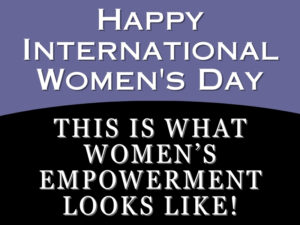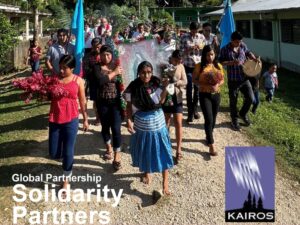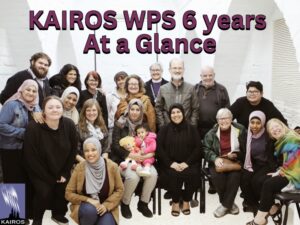#HearMeToo: women-led grassroots organizations are best chance to end violence

Research by UN Women also tells us that only five per cent of international funds are allocated to programs targeting gender equality and women’s empowerment in fragile states. Canada can change this chronic underfunding by investing in the best chance for sustained peace in the world’s most volatile regions.
Gloria Suarez, pictured, is with the Organización Femenina Popular, Colombia’s pre-eminent grassroots women’s organization. Next week, Ms. Suarez will be on Parliament Hill to urge the Canadian government to fully fund and implement its Feminist International Assistance Policy. Photograph courtesy of KAIROS Canada
Gloria Suarez will not be quiet. She knows all too well that silence against gender-based violence feeds more violence. Suarez is with the Organización Femenina Popular (OFP), Colombia’s pre-eminent grassroots women’s organization. In a country ravaged by more than 50 years of civil conflict, where rape and other forms of violence against women were used as weapons of war, the OFP works for sustained peace.
Next week, Suarez will be on Parliament Hill to urge the Canadian government to fully fund and implement its Feminist International Assistance Policy (FIAP). Joining her are women from four other KAIROS partners—Héritiers de la Justice (Democratic Republic of the Congo), South Sudan Council of Churches—National Women’s Program, National Council of Churches (Philippines), and Wi’am (West Bank). These women live and work in regions impacted by protracted, intractable and brutal conflicts. While the contexts differ, the impacts on women are similar.
They are in Canada during the 16 Days of Activism Against Gender-Based Violence campaign, which begins on Nov. 25, the International Day for the Elimination of Violence Against Women. The 2018 campaign theme—Orange the World: #HearMeToo—is intended to galvanize action to end violence against women and girls.
Their organizations transform lives and build conditions for sustained peace by providing women with the support they need to heal, reclaim dignity, and become effective peace builders and human defenders. The casas de mujeres (women’s centres) which are at the heart of the OFP’s work, for example, offer psycho-social counselling, human rights training, and legal support to female survivors of violence who seek justice and reparations through Colombia’s Victims’ Laws.
Women are several times victims of war, experiencing sexual violence by soldiers, increased domestic violence, stigmatization, harassment, and even death for criticizing war. Women are also often excluded from peace negotiations.
Although peace-building is often seen as the purview of world leaders and armed actors, most of whom are men, genuine peace-building often manifests itself in the tireless work of women and their male allies.
According to UN Women, when women are included in peace processes there is a 20 per cent increase in the probability of an agreement lasting at least two years, and a 35 per cent increase in the probability of an agreement lasting at least 15 years.
This role is recognized in United Nations Security Council Resolution (UNSRC) 1325 on Women, Peace and Security. Canada too recognizes this through FIAP, which recognizes women and peacebuilding as an action area.
During Colombia’s peace negotiations, which began in 2012, the OFP mobilized with other women’s organizations to ensure the implementation of UNSCR 1325 was part of Colombia’s Peace Accords. As a result, women were present at all levels of the negotiations, which is unusual as typically women make up only a tiny fraction of chief mediators, signatories and negotiators.
Thanks to the insistence and persistence of the OFP and others, the Final Accord to the Conflict in Colombia between the Colombian government and the Revolutionary Armed Forces of Colombia, signed in 2016, is remarkable for its unprecedented inclusion of women’s rights and gender justice.
KAIROS and its partners are asking Canada to match dollars to words. As the federal government prepares the 2019/20 budget, we urge that it fund and implement FIAP and focus support on grassroots organizations. This cannot happen if its international assistance remains stagnant at 0.26 per cent of gross national income. The international standard is 0.7 per cent. Canada could match this standard with an annual increase of 15 percent over the next 10 years. It’s doable and its needed.
Research by UN Women also tells us that only five per cent of international funds are allocated to programs targeting gender equality and women’s empowerment in fragile states. Canada can change this chronic underfunding by investing in the best chance for sustained peace in the world’s most volatile regions. Just like silence, inaction is not an option.
Originally published in the Hill Times on November 19, 2018. Rachel Warden is the Partnerships Manager at KAIROS Canada.








